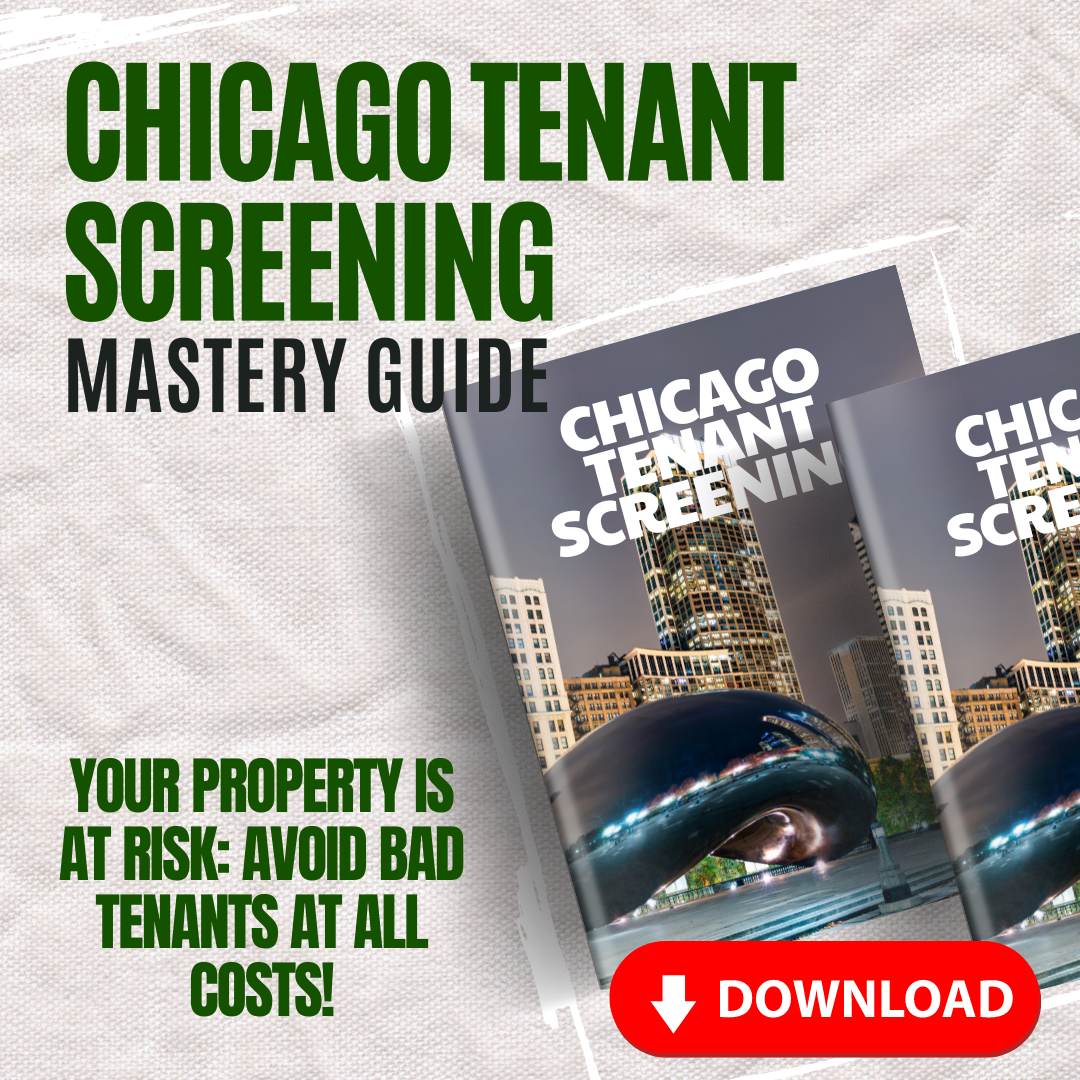Since 2021, the Illinois state-funded Court-Based Rental Assistance Program (CBRAP) has served as a vital resource for both tenants and landlords, especially during economic downturns and individual hardships.
The 2025 program update introduces changes that impact Chicago landlords, affecting tenant support, eviction processes, and financial relief. As we approach the new year, it's crucial for landlords to understand how these updates will affect their rental operations.
Overview of the Updated Rental Assistance Program
Created during the COVID-19 pandemic, CBRAP helps tenants facing financial difficulties pay their rent and avoid eviction. The program aims to keep renters housed and pay landlords for missed rent. It has proven to be a vital lifeline when tenants face job loss or other financial troubles. It keeps both parties out of court for evictions and saves time, money, and reputational damage.
Landlords in Chicago rental programs should take note of several notable updates to the program. These changes address grant caps, eviction dismissals, and other procedural aspects that will require landlords to adjust their practices when accepting tenant aid.
1. Grant Caps
One of the primary changes to the Illinois rental assistance updates involves grant caps for landlords who accept tenant assistance. The state introduced limits on how much financial assistance a tenant can receive through the program.
For tenants, these caps enable more equitable distribution of limited funds while providing a reasonable amount of support for those who need it most. For landlords, these grant caps may affect their cash flow and rent collection practices.
With these changes, it's crucial for landlords to stay informed about the maximum amounts they can expect from the program. They should also ensure their tenants clearly understand the program’s cap rates.
Why This Change Matters: Landlords need to be more strategic about the amount of assistance they request. They’ll also need to determine and document their policy for tenants who cannot meet the new financial thresholds.
2. Eviction Dismissals
Another major update for 2025 concerns the impact of rental assistance on eviction processes. Tenants who enroll in the program may now have more flexibility regarding eviction dismissals.
For example, suppose a tenant receives rental assistance and works with the state to pay a portion of their overdue rent. In that case, they can potentially have their eviction dismissed, even if the landlord has already filed.
This significant change introduces more variables to landlords' eviction processes. For example, a landlord might initiate eviction proceedings only to have them halted by the tenant's successful application for rental assistance.
Why This Change Matters: While frustrating for landlords who need to recover missed rent payments quickly, they need to be prepared for this potential. Ideally, this step could provide tenants with the chance to stay in their homes.
3. Implications for Landlords Accepting Assistance
The Illinois rental assistance program can be a double-edged sword for landlords.
On the one hand, accepting assistance helps landlords recover unpaid rent, preventing financial losses due to tenant defaults. On the other hand, landlords need to navigate the complexities of accepting state aid and how to avoid potential negative impacts.
For example, a landlord may need to wait for approval of a tenant's assistance application before pursuing eviction, adding time to the process. There’s also an art to understanding when to accept assistance and when to proceed with eviction. Understanding this dance is crucial for maintaining a smooth operation.
Why This Matters: Landlords must fully understand the rules on tenant aid and property management while avoiding potential pitfalls such as eviction delays or disputes over the program's eligibility requirements.
Balancing Assistance Acceptance and Eviction Processes
To comply with the updated program and protect their finances, Chicago landlords should follow these best practices:
1. Stay Informed on Program Changes
Landlords regularly review official communications from the Illinois Housing Development Authority (IHDA) or local authorities. This way, they can stay up-to-date on the latest policies and deadlines, including understanding grant caps and how the state prioritizes which tenants receive assistance. As any attorney will tell you, ignorance of the law is no defense.
2. Be Transparent with Tenants
Chicago landlords should always strive to communicate clearly with their tenants, but it's absolutely essential for discussions about rental assistance options. For example, they should inform tenants about the availability of rental assistance programs and encourage them to apply if they’re facing financial hardship. By providing tenants with information and guidance on how to apply for assistance, landlords work as partners with their tenants to help the process go smoothly. This also reduces the risk of future disputes.
3. Prepare for Eviction Delays
If a tenant applies for rental assistance, landlords should prepare for potential delays in the eviction process. While a tenant is applying for or receiving assistance, the courts may pause or dismiss the eviction process. Landlords should be comfortable with waiting before taking further action. While factoring this into their decision-making process, they should prepare themselves (mentally and financially) for a process that already feels like an eternity to last even longer.
4. Establish Clear Rental Assistance Policies
To streamline the process, landlords and property managers should establish clear policies regarding the acceptance of rental assistance. These policies should outline when to accept assistance, how to handle applications, and what steps to take if assistance is denied. Having clear guidelines in place removes emotional reactions from clouding a landlord’s judgment. This can help ensure they make informed decisions that protect their financial interests while also adhering to the program's requirements.
5. Work with a Professional Property Management Company
Navigating the complexities of the Illinois rental assistance program can be challenging, especially for landlords who lack the time or resources to manage the process effectively. Partnering with an experienced property management company like GC Realty & Development can help landlords decide when to accept rental assistance. We can also advise you on how to comply with rental assistance programs and eviction processes. Our team can handle communication with tenants, process rental assistance applications, and manage any delays or challenges related to eviction proceedings.
The Bottom Line
Landlords can balance when to accept aid with managing evictions by staying informed, communicating with tenants, and having clear policies. If you own Chicago rental homes and aren’t sure how to adapt to these changes or need assistance in navigating the program.
Navigating the new Illinois rental assistance laws can leave you vulnerable to costly delays and disruptions. Evictions can drag on, rent can go unpaid, and your investment could be at risk—if you don’t have the right support.
Need help adjusting your tenant screening process? Call GC Realty & Development today for expert advice on complying with Illinois credit law and enhancing your property management operations. We're committed to helping you stay ahead of industry changes and ensuring your practices are fair, efficient, and in accordance with the latest regulations.
Visit GC Realty & Development for more information or to schedule a consultation. We’ll help you confidently navigate tenant screening in light of the new Illinois credit law.

 Vendor Portal
Vendor Portal

%20(1)_1.png)
